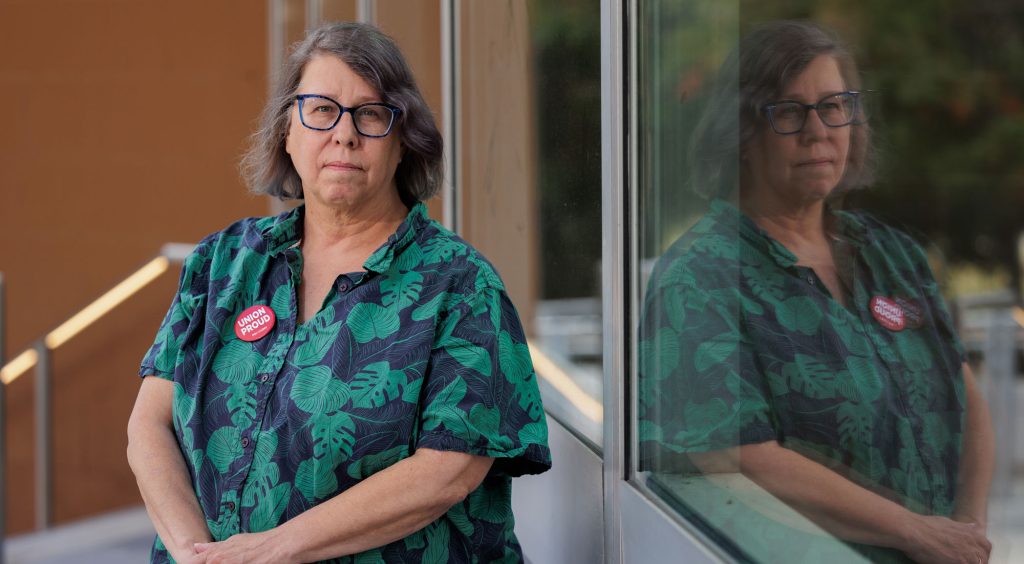At the end of August, I received my usual email from one of our Borough of Manhattan Community College New York Public Interest Research Group (NYPIRG) activists to arrange a time to talk to my class about registering to vote. I immediately said yes and set up a time. NYPIRG is a nonpartisan, nonprofit research and public education organization. In addition to registering people to vote, it runs public education campaigns about consumer and environmental issues (the group also has a long history of advocating for CUNY). To my great concern, the email that followed from the BMCC team asked me whether I had any idea why some faculty were saying that NYPIRG was banned from being in BMCC classrooms.
TYPICAL BMCC

Kathleen Offenholley of Borough of Manhattan Community College. (Credit: Paul Frangipane)
After some digging, I found that, in typical BMCC fashion, the provost had informed the department chairs of this new directive, and the chairs were expected to communicate it – right as the semester started – to the faculty in their departments. I let the chair of the PSC’s Academic Freedom Committee know, and two committees of the campus senate took up the issue in their first meetings. I also informed PSC First Vice President Jen Gaboury and Nicholas A. Devyatkin, the union’s director of legal affairs.
The Academic Freedom Committee came up with a strongly worded resolution on academic freedom, and at the same time, the PSC drafted a letter as well, signed by President James Davis, which read in part, “Academic freedom is essential to the intellectual integrity and rigor of an academic institution. As Arbitrator Robert L. Stutz held in a previous case, ‘It is difficult to conceive of a more fundamental condition of employment at any academic institution than academic freedom and the responsibilities attached to its exercise.’
“In accordance with BMCC’s own Governance Plan and the American Association of University Professors’ (AAUP) definition of academic freedom, faculty are entitled ‘to freedom in the classroom in discussing their subject’ and this right includes inviting guest speakers. Your denial of faculty members’ invitations to NYPIRG representatives in class sessions is excessively intimidating and threatening in tone and substance. The intent of the denial appears to prevent any invited guest speakers on campus based on subject matter that you deem ‘political’ or whose affiliation is part of an ‘external group,’ which is an entirely subjective determination, a content-based restriction on speech and blatant violation of academic freedom.”
WINNING
The letter was sent just before the College Council and Academic Senate were set to meet. During the College Council, which at BMCC is held the hour before the Senate meeting, Hollis Glazer, the chair of BMCC’s Academic Freedom Committee, raised her hand to share the resolution that she would be bringing, and I raised my hand to read the letter from President Davis. We were both told by the BMCC president that we were out of order because we were interrupting the College Council meeting. Just then, both our phones lit up with the message that BMCC’s acting assistant vice president for legal affairs and labor relations had rescinded her letter backing the ban.
We had won!
This is what it looks like when we all work together – faculty governance and the union, in support of our academic freedom and our students’ rights.
Kathleen Offenholley is the chair of the PSC’s BMCC chapter.
Published: October 29, 2024

